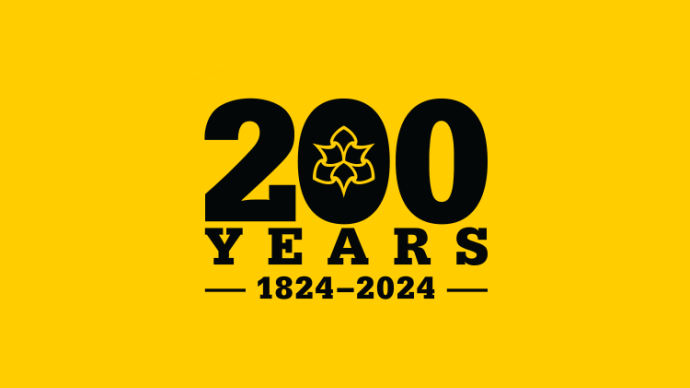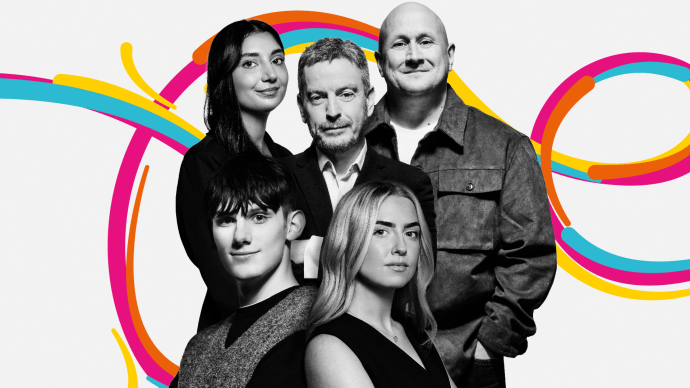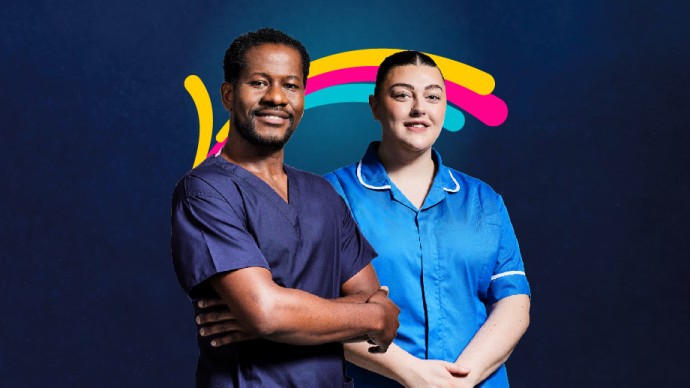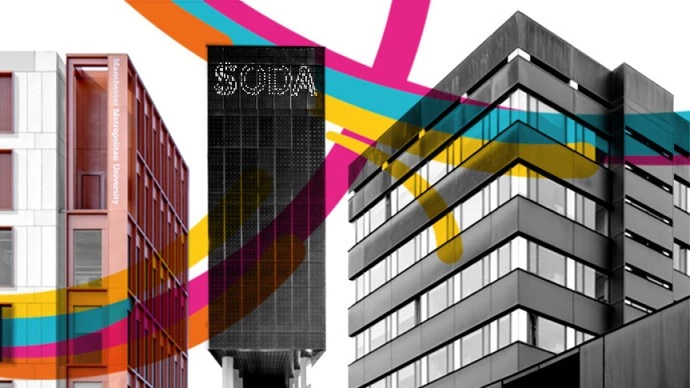A Q&A with environmentalist Andy Ridley
Andy Ridley

Standfirst
Manchester Met alumnus Andy Ridley, the founder of the global movement Earth Hour and now the founding CEO of Citizens of the Reef, explains how he has blended his passion for conservation with communication expertise to mobilise the masses into taking environmental action across the globe.
Read more about how his career path has taken him to the other side of the world to protect the iconic Great Barrier Reef.
Main story
Tell us about your time at Manchester Met
I was there from 1990 until the end of 93, staying in Cavendish Halls of Residence and graduating with a BA (Hons) Modern Studies, History, Politics and English. I had a fantastic time. Manchester is an amazing city, and the music scene was extraordinary. My time at University was both educational and fun.
When did your passion for conservation start?
Every summer I would work on marine survey boats in Hong Kong and the South China Sea and this kind of triggered it. And I was always interested in how you communicate and get scale.
Communication is an incredible tool that is poorly regarded in areas like conservation. If you want to scale up, it is a critical component of that.
I always wanted to work for a not-for-profit company and was inspired by Live Aid in the eighties. That shaped my thinking when I went to uni, my career and even now.
Can you tell us about your career path?
I started at the Princes Trust, it was a very innovative organisation and one of the best jobs I’ve done. Again, I noticed that the power of communication was frequently underestimated.
Communication is a big component of creating social change. You can make big things happen by getting access to millions of people. When you connect them with a common purpose, amazing things can happen.
When I was working as Communications Director for WWF in Australia, I saw an opportunity to mobilise people on climate change.
We did the first Earth Hour in Sydney in 2007 focusing on hope not fear and creating an iconic moment of people coming together, turning the lights off across the city. You could see the power of collective action and it grew from there with 7,000 cities eventually taking part.
We always wanted to use this energy to deliver change. We built crowdfunding platforms, and it became a machine for delivering conservation outcomes.

We always wanted to use this energy to deliver change. We built crowdfunding platforms, and it became a machine for delivering conservation outcomes. It was used to run campaigns and secure public engagement behind them, creating massive forests in Uganda and new marine protected areas in Argentina.
I then went on to run a co-operative in Amsterdam called Circle Economy. Single-use items are completely unsustainable for the planet. The circular economy is a growing movement designed to address that.
In 2016, I was in Amsterdam when the story about the mass bleaching on the Great Barrier Reef hit the headlines. It was a terribly confronting story with rising water temperatures bleaching the coral and killing it.
Some friends had been asking my advice on an idea called Citizens of the Great Barrier Reef and asked if I wanted to set it up. So, I moved to Cairns to start the new organisation.
How would you describe Citizens of the Reef?
Citizens is designed to be a 21st-century conservation organisation. We are the first generation with access to technology that can connect people with a common purpose. We are also the generation facing the biggest environmental concerns.
There are two big issues that we need to address: reducing emissions and scaling up conservation on a global scale. If you can do that in a marine environment, you can do it in a terrestrial environment. So, we have focused on the biggest and most iconic reef in the world.
Citizens is people-powered conservation for the 21st century. It engages people at all levels across the Great Barrier Reef and from across the world as virtual volunteers with a common goal.
How does the work that you do protect the reef?
We have two approaches. The Great Barrier Reef is a pilot for a global approach to reef conservation. We are about to start taking our projects to Hawaii and the Red Sea.
Good data is key to understanding what is happening in the reefs and establishing the Mother Reefs. The Great Barrier Reef is made up of 3,000 reefs and the Mother Reef re-boots them all, so we need to ensure they are getting the best protection from pests and coral killers like the Crown of Thorns starfish.
The Great Reef Census is one of the biggest citizen science-driven projects in the world for marine conservation. Images are taken of as many reefs as possible, then using AI and the human eye we establish which reefs have the most amount of the three main types of coral on them. We can then map the most important reefs and how to protect them.
Our other project is the reef cooperative. Once we have identified the most important reefs, this focuses on the practical implementation of restoration or stewardship.
With Citizens, we have built the machine to do the conservation and we are now getting to the phase of how we put this into a massive scaled-up version that we can take around the world.
Citizens has created a movement. How have you attracted people to get involved?
There are two main audiences, the people living and working on the reef. They provide photos providing insight into what needs to be done or they are doing the restoration work. This model can be used around the world.
The other aspect is really critical - the citizen scientist. We have thousands of people analysing images of the reef. AI gives us about 70% accuracy, the citizen scientist input increases the accuracy and turnaround times – we can do analysis of the entire Great Barrier Reef in a couple of months.
The whole model is scalable to reef systems all over the world and the learning is transferable to a terrestrial environment. Our partnerships provide talent, resources, analysis, and funds. Dell does a lot of the AI with us; we work with Mars on restoration and Disney on our narrative building. In return, they are getting involved in something authentic and really cool.
What would you say to someone who wants to embark on a career in conservation?
You need a broad skill set. If you want to get massive results in conservation and scale you need to engage the mainstream everyday citizen. They are the ones that will help you change government policy, and they are also key to accessing resources, time, and talent.
There is never enough money in conservation, but the opportunities are out there – you have to find them. If you are going to be successful, creating a sustainable funding model will be the biggest breakthrough. Finally, get out into nature and enjoy. Being inspired by nature makes the job far more joyful.
More research
Discover more
-
![Luke Cronshaw, the Commercial Director of Enviroheat, posing in front of radiators at his factory]()
Energising sustainable power
Find out more -
![Dr Dave Megson smiling at the camera.]()
How environmental chemistry is hitting the headlines
Find out more -
![Professor Liz Price smiling]()
Building a brighter future
Find out more
About 200 years
Manchester Met celebrates two centuries of driving progress through excellent education and research.
-
![200 years 1824-2024]()
200 years
Find out more -
![Siemens Chief Executive Carl Ennis posing with the firms degree apprentices]()
Driving economic growth
Find out more -
![Two nurses standing together and smiling]()
Transforming health
Find out more -
![A digital image of the university's arts buildings]()
Championing creative excellence
Find out more







